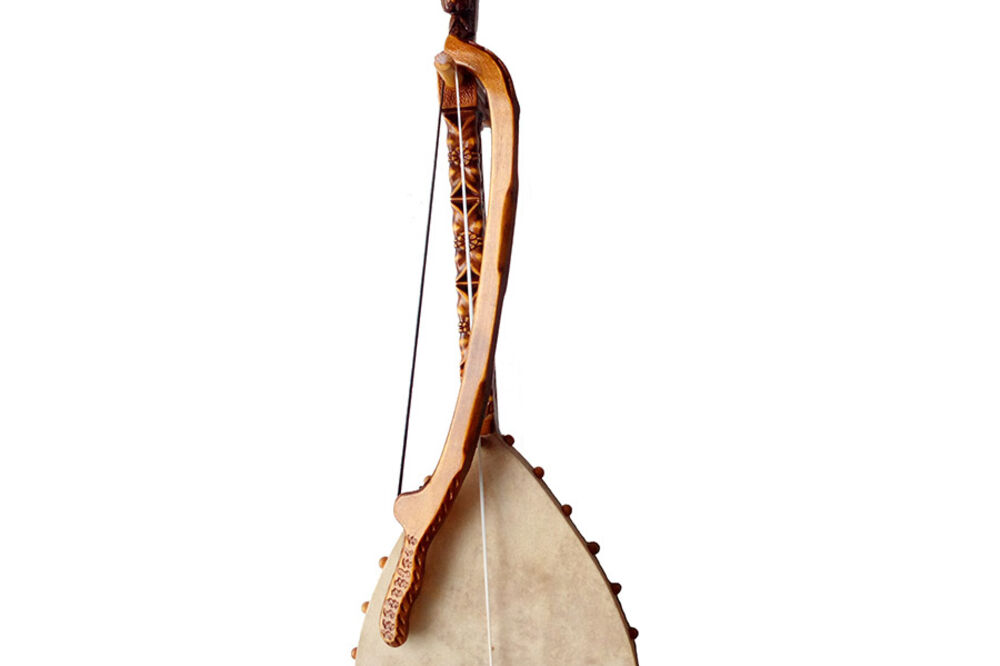This won't happen without a fiddle...
After the opening ceremony of the Serbian Club in Beijing, where a fiddler appeared in a Montenegrin costume, the unthinkable happened: that such an event had an impact at all. These are those protocol, mostly boring ceremonies, which also reach the media, well, for the sake of order... But, this time it was not like that.
In the end, it turned out that the Montenegrin Ministry of Culture was quite inert at the time when it was possible to make a joint candidacy of gusal as an intangible heritage of humanity, although there were serious voices that indicated the need to do so. So, because of that, there is still some feeling about the "reproach" of gusal in today's Montenegro. Those who came to power on the fiddle, today shy away from the fiddle.
Gusle has preserved a great literary heritage, which in its heyday (Hasanaginica, Maksim Crnojević, Banović Strahinja, Ivo Senković and aga from Ribnik) reaches Shakespearean registers. The fact that today's fiddler "hits" are parodic mockery compared to the listed songs does not change anything. The fiddle is certainly not the only thing that has been degraded in our time.
But, always when you watch the nationally foaming fighters for "our cause" in a new action, they all seem ridiculous. The experience of a world in which someone believes that the fiddle is an autochthonous Montenegrin (or Serbian, Bosniak) tradition is similar to those experts who claim that the Montenegrin (Serbian, Croatian, Bosniak) autochthonous language is different from all these similar, or the same...
The origin of fiddles is in the Asian steppe, they went with the tradition of nomad herders (goat's head on top), so guessing whose fiddle it is is actually silly. Toynbee's thesis about the steppe as a transmitter of language in this case can also be read in a wider context, as a transmitter of cultural models.
In the Montenegrin reality several centuries ago, the fiddle was a substitute for all media. Something similar to Marquez's Francisco Man, who went from village to village, not with a fiddle, but with a small accordion, and sang, conveying messages from others to people.
I also heard the expression "They beg him like a fiddler", because I guess in the tradition of that job there was a certain nagging, a whole ritual of persuasion.
My experience with the fiddle is not great. As a good part of my generation, while we were waiting for Zoki Gligorović's popular radio show on Sundays around half past ten in the morning, we had to hear at least the end of the epic slaughter chosen for that day, the regular time slot at ten o'clock... All Titograd buildings then echoed with fiddlers. from the radio.
However, my favorite fiddle episode in Montenegrin (recent) history is the famous AB meeting in Nikšić. The entire square of AB revolutionaries shouted "We want Russians", but, since it was forbidden to publicly wish for it, even though the AB elite at that time very clearly flirted with both Greater Serbia and Russophilism, someone quickly came up with the idea to assert that "We want Russians" was not shouted. but "We want a fiddle". Rima "did" the job, but basically - the message meant the same. Russians and fiddles, in the context of the Nikšić meeting, were synonymous - with the meaning of returning to the mythical past.
I don't believe that anyone believed that the Montenegrins on that day called for a musical instrument instead of "brothers from the east", that the spirit of folk art was more important to the aforementioned rallyists than the "geopolitics" of the time. A particularly interesting moment is just that, a historical moment, the year 1989, when everyone who was with the Russians tries to get as far away from them as possible, the Soviet empire is extinguished, and here - it is enthusiastically invoked. That was Montenegro at a historical turning point - while the others are fighting for democracy, we are calling on the Russians. That irrational, dangerous wave also brought the current Montenegrin president to the scene.
It would be interesting to make a history of Montenegrin-Russian relations in the post-communist era - from We want Russians to a coup with the Russians in the background...
Bonus video:





